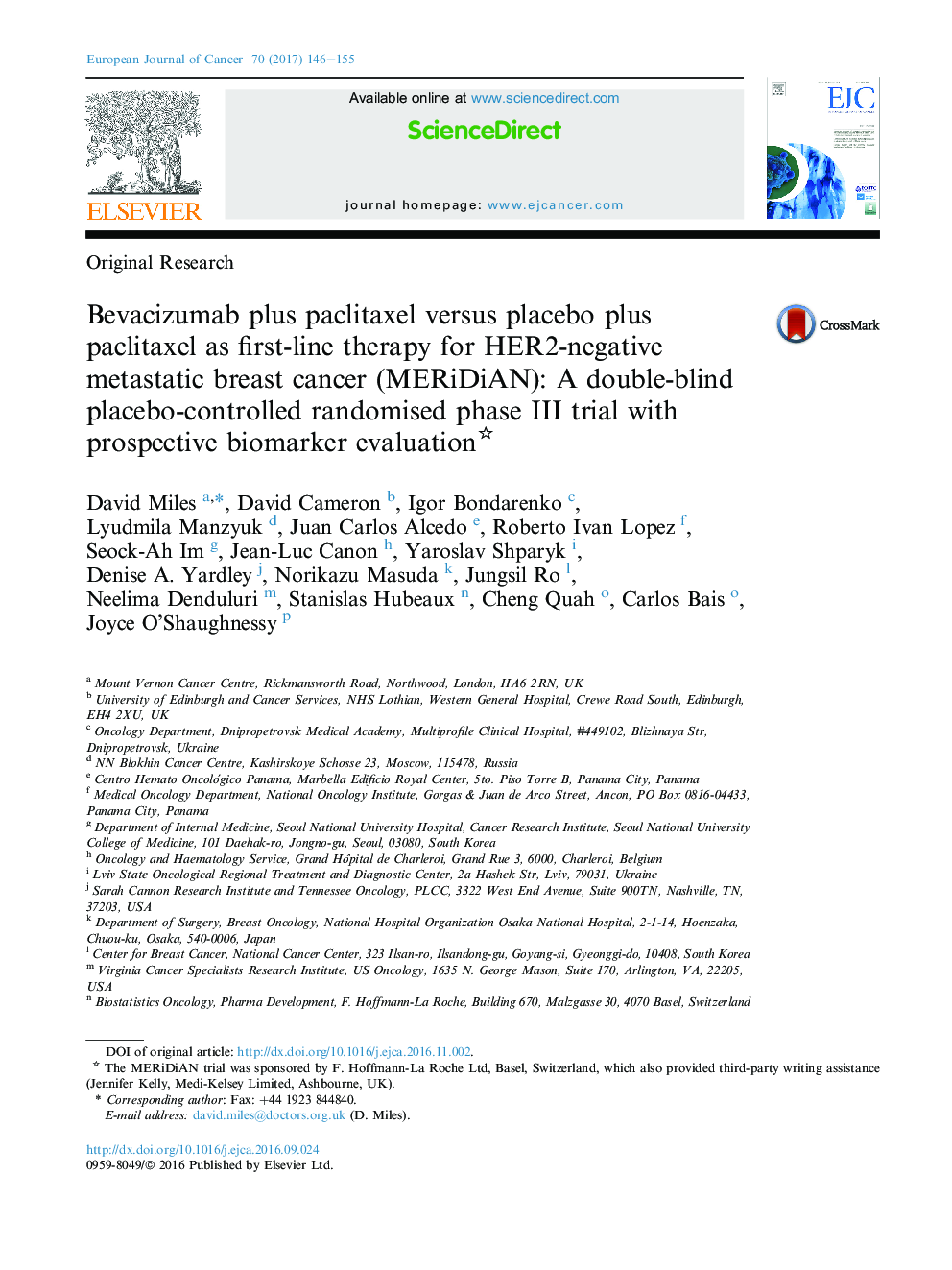| کد مقاله | کد نشریه | سال انتشار | مقاله انگلیسی | نسخه تمام متن |
|---|---|---|---|---|
| 5526812 | 1547063 | 2017 | 10 صفحه PDF | دانلود رایگان |

- This is the first prospective evaluation of a candidate biomarker for bevacizumab.
- Adding bevacizumab to paclitaxel significantly improved progression-free survival (primary end-point).
- Results do not support plasma vascular endothelial growth factor-A as a predictive biomarker for bevacizumab.
AimMERiDiAN evaluated plasma vascular endothelial growth factor-A (pVEGF-A) prospectively as a predictive biomarker for bevacizumab efficacy in metastatic breast cancer (mBC).MethodsIn this double-blind placebo-controlled randomised phase III trial, eligible patients had HER2-negative mBC previously untreated with chemotherapy. pVEGF-A was measured before randomisation to paclitaxel 90 mg/m2 on days 1, 8 and 15 with either placebo or bevacizumab 10 mg/kg on days 1 and 15, repeated every 4 weeks until disease progression, unacceptable toxicity or consent withdrawal. Stratification factors were baseline pVEGF-A, prior adjuvant chemotherapy, hormone receptor status and geographic region. Co-primary end-points were investigator-assessed progression-free survival (PFS) in the intent-to-treat and pVEGF-Ahigh populations.ResultsOf 481 patients randomised (242 placebo-paclitaxel; 239 bevacizumab-paclitaxel), 471 received study treatment. The stratified PFS hazard ratio was 0.68 (99% confidence interval, 0.51-0.91; log-rank p = 0.0007) in the intent-to-treat population (median 8.8 months with placebo-paclitaxel versus 11.0 months with bevacizumab-paclitaxel) and 0.64 (96% confidence interval, 0.47-0.88; log-rank p = 0.0038) in the pVEGF-Ahigh subgroup. The PFS treatment-by-VEGF-A interaction p value (secondary end-point) was 0.4619. Bevacizumab was associated with increased incidences of bleeding (all grades: 45% versus 27% with placebo), neutropenia (all grades: 39% versus 29%; grade â¥3: 25% versus 13%) and hypertension (all grades: 31% versus 13%; grade â¥3: 11% versus 4%).ConclusionThe significant PFS improvement with bevacizumab is consistent with previous placebo-controlled first-line trials in mBC. Results do not support using baseline pVEGF-A to identify patients benefitting most from bevacizumab.Clinical trials registrationClinicalTrials.gov NCT01663727.
Journal: European Journal of Cancer - Volume 70, January 2017, Pages 146-155